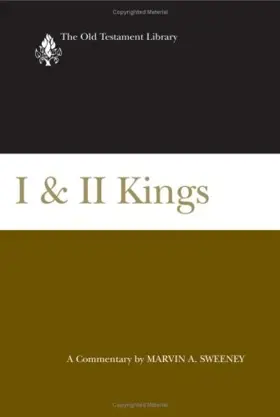

I and II Kings
Pages
476
Publisher
Westminster John Knox
Published
1/1/2007
ISBN-13
9780664220846
Collections
This book appears in the following featured collections.
- Best Advanced OT Commentaries by Jason Gile
- Top Old Testament Commentaries by Engaging Scripture (Nijay Gupta's Substack)
- Commentaries by Jewish Scholars by Matt Quintana
Reviews
Sweeney’s commentary is not only aware of the scholarly debates surrounding the book of Kings, he navigates them with ease. He helps us to understand the discussions in the academy and provides compelling arguments and syntheses of his own. Useful for scholars and teachers, but not a preaching commentary.
[Full Review]
A balanced approach, but a bit too scant on detail, given that the OTL is a more advanced, in depth series.
Just finished reading this, because I was studying Saul. I appreciated the Hebrew details that I couldn't get in other commentaries.
Sweeney has several helpful insights into Kings. He is at his best when dealing with the literary aspects of the text. As a caveat, much of his interpretation is based on his historical reconstruction of different redactions of the text; if you don't agree with him here, this will be less useful for you. If nothing else, read the intro. It's excellent.
Assume you have to teach an undergraduate course on Kings, and you are supposed to cover both the literary and the historical aspects; which three commentaries would you advise your students to consult? There are still Würthwein and Cogan-Tadmor, but for the third? The two Berit Olam volumes are excellent but do not serve your present purpose; V. Fritz is too short, Mulder too thick, incomplete, and historically aberrant. Could the new commentary by Marvin Sweeney fill the gap? With a little less than five hundred pages for all of Kings, the format is just about right, as is the length and depth of the introduction (ca. 10 percent of the text). But then the objections start to amass. Both in its positions and in its selection of references, the commentary is very much a thing past biblical scholarship, hardly addresses the present debates, and cannot expect too much of a future. Kings tells the history of the Israelite and Judean monarchies more or less correctly (including Josiah’s impossible cultic centralization), if from a specific ideological point of view, and the text was finalized during the exile. Concerning Naboth’s vineyard (1 Kgs 21), the reader is referred to the recent excavations (247 n. 66) but without being told that the Omride military camp found by Ussishkin and Woodhead cannot possibly serve as the venue for the plot of 1 Kgs 21 (no room for vineyards there).
[Full Review]


